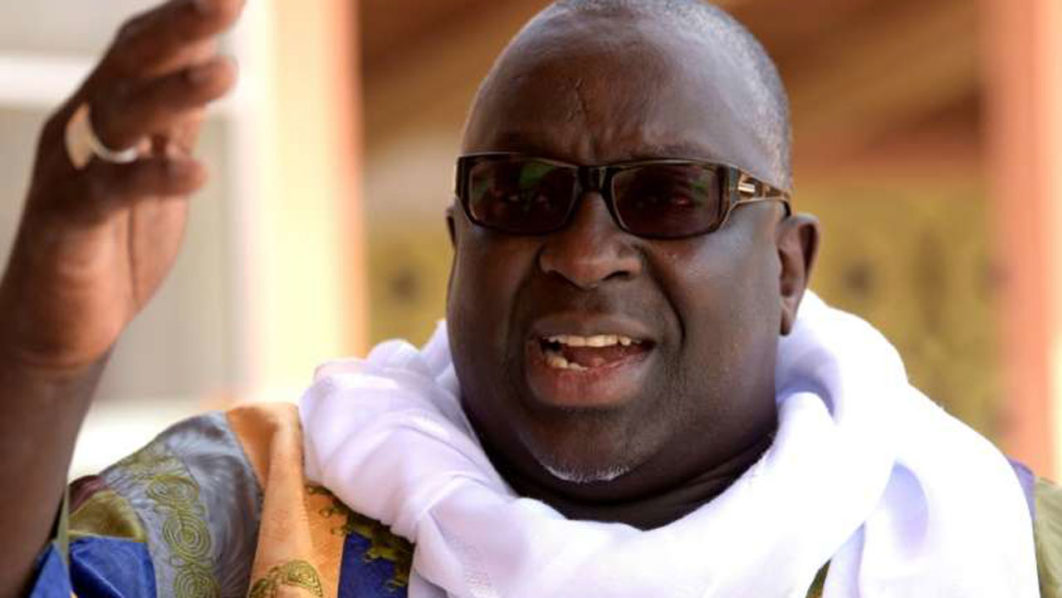 |
| Papa Massata Diack |
Lamine Diack, the disgraced former head of world athletics’ ruling body the IAAF, and his son Papa Massata Diack are to stand trial in France on charges of corruption and money laundering, sources told AFP.
Diack was IAAF president between 1999-2015 but his reign ended in chaos amid charges he and his son obstructed sanctions against Russia for doping in return for payments.
“The freeze in sanctions in exchange for financial kickbacks was negotiated by Lamine Diack with Valentin Balakhnichev, who was both president of the Russian Athletics Federation (ARAF) and IAAF Treasurer,” three French judges led by Renaud Van Ruymbeke said in their order to trial, dated June 19, a copy of which was seen by AFP.
Papa Massata Diack, a former marketing consultant to the IAAF, has — unlike his father — refused to cooperate with the investigation and has never been questioned by French officials.
He is one of five others who will face trial on the same charges along with Balakhnichev, Russia’s former national middle distance coach Alexei Melnikov, Lamine Diack’s former advisor Habib Cisse, and the IAAF’s former anti-doping chief Gabriel Dolle.
The French investigation into Diack began in 2015 when Britain’s Sebastian Coe took over from the 86-year-old Senegalese as IAAF president.
– Corruption and doping –
French prosecutors took up the case because they suspect money was laundered in France.
The backdrop to the investigation is the system of state-sponsored doping uncovered in Russia by the World Anti-Doping Agency (WADA).
Prosecutors allege that Lamine Diack was prepared to accept funding for political campaigns in Senegal in return for IAAF anti-doping officials turning a blind eye to Russian athletes caught doping.
“Under the leadership of its president and after many years of mishandling, the IAAF brought together corruption and incitement to carry out doping,” they said in a summary of their case last month.
One doping case involving Russian athletes that prosecutors have scrutinised is that of marathon runner Liliya Shobukhova, who won the Chicago marathon three times but was later banned for using the endurance-boosting drug EPO.
Shobukhova admitted paying 450,000 euros ($500,000) to avoid sanctions. When she was suspended in 2014, she blew the whistle on corruption between Russian athletics and IAAF figures, including Papa Massata Diack.
In 2017, Papa Massata Diack branded the corruption allegations against him as “a witch hunt” and accused France of having “taken hostage” his father.
The IAAF suspended Russia in November 2015 after the allegations of state involvement in doping emerged.
Russian track and field athletes were banned from competing under their own flag at the 2016 Rio Olympics.
Russia was re-admitted to the Olympic fold last year but the IAAF continues to ban Russian athletes from competing in their national colours.
AFP
Diack was IAAF president between 1999-2015 but his reign ended in chaos amid charges he and his son obstructed sanctions against Russia for doping in return for payments.
“The freeze in sanctions in exchange for financial kickbacks was negotiated by Lamine Diack with Valentin Balakhnichev, who was both president of the Russian Athletics Federation (ARAF) and IAAF Treasurer,” three French judges led by Renaud Van Ruymbeke said in their order to trial, dated June 19, a copy of which was seen by AFP.
Papa Massata Diack, a former marketing consultant to the IAAF, has — unlike his father — refused to cooperate with the investigation and has never been questioned by French officials.
He is one of five others who will face trial on the same charges along with Balakhnichev, Russia’s former national middle distance coach Alexei Melnikov, Lamine Diack’s former advisor Habib Cisse, and the IAAF’s former anti-doping chief Gabriel Dolle.
The French investigation into Diack began in 2015 when Britain’s Sebastian Coe took over from the 86-year-old Senegalese as IAAF president.
– Corruption and doping –
French prosecutors took up the case because they suspect money was laundered in France.
The backdrop to the investigation is the system of state-sponsored doping uncovered in Russia by the World Anti-Doping Agency (WADA).
Prosecutors allege that Lamine Diack was prepared to accept funding for political campaigns in Senegal in return for IAAF anti-doping officials turning a blind eye to Russian athletes caught doping.
“Under the leadership of its president and after many years of mishandling, the IAAF brought together corruption and incitement to carry out doping,” they said in a summary of their case last month.
One doping case involving Russian athletes that prosecutors have scrutinised is that of marathon runner Liliya Shobukhova, who won the Chicago marathon three times but was later banned for using the endurance-boosting drug EPO.
Shobukhova admitted paying 450,000 euros ($500,000) to avoid sanctions. When she was suspended in 2014, she blew the whistle on corruption between Russian athletics and IAAF figures, including Papa Massata Diack.
In 2017, Papa Massata Diack branded the corruption allegations against him as “a witch hunt” and accused France of having “taken hostage” his father.
The IAAF suspended Russia in November 2015 after the allegations of state involvement in doping emerged.
Russian track and field athletes were banned from competing under their own flag at the 2016 Rio Olympics.
Russia was re-admitted to the Olympic fold last year but the IAAF continues to ban Russian athletes from competing in their national colours.
AFP
In this article:
